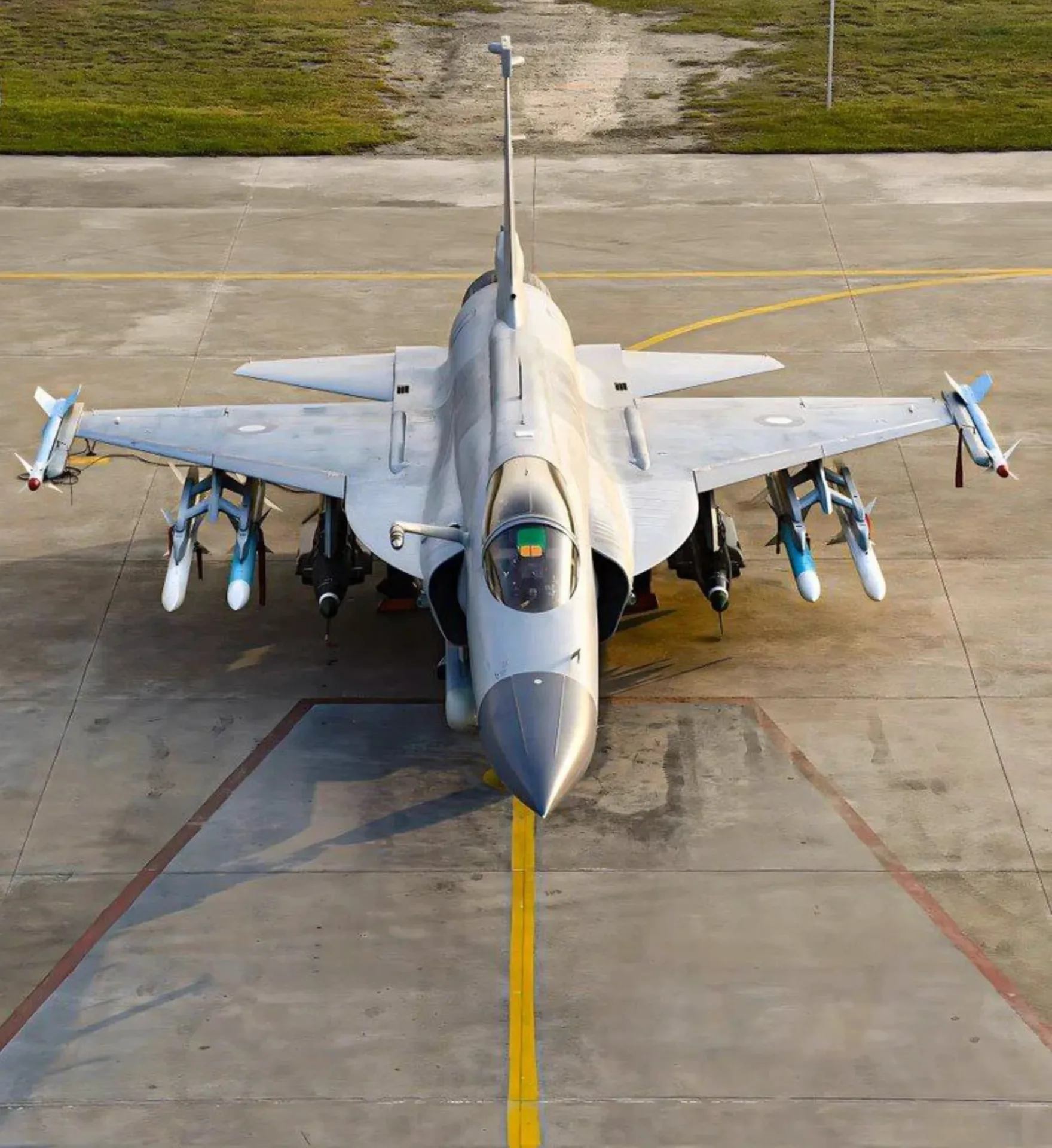Pakistan’s JF-17, J-10C Conducts Surgical Strikes on Insurgents Groups in Iran
The aerial assault conducted by Pakistan's JF-17 "Thunder" and J-10C "Vigorous Dragon" fighter aircraft, along with the armed drones Wing Loong II, is specifically aimed at the positions held by anti-Pakistan groups in the Sistan and Baluchistan region of Iran, situated along the border with Pakistan.
(DEFENCE SECURITY ASIA) — Pakistani Air Force has deployed its JF-17 “Thunder” and J-10C “Vigorous Dragon” to launch surgical airstrikes on anti-Pakistan insurgent groups within the territory of Iran.
In addition to fighter jets, Islamabad is also using the Wing Loong II drones in an operation named “Marg Bar Sarmachar,” translating to “death to guerrillas.”
The airstrikes conducted by Pakistan’s JF-17 and J-10C fighter jets, along with armed drones, are targeted at positions held by insurgent groups in the Sistan and Baluchistan region of Iran, situated along the border with Pakistan.
The Pakistan-Iran border spans approximately 900km.
The JF-17 fighter aircraft is jointly developed by the Pakistan Aeronautical Complex (PAC) and the Chengdu Aircraft Industry Group (CAIG).
China, in collaboration with Pakistan, has provided advanced technologies, including those used in its state-of-the-art J-20 “Mighty Dragon” fighter jets, to be incorporated into the JF-17 Block 3 variant.

The Pakistan Air Force is reported to possess around 50 JF-17 Block 3 aircraft by the year 2024, adding to its inventory of 98 JF-17 Block 1 and Block 2 aircraft.
Notable enhancements in the JF-17 Block 3 include the integration of the Active Electronically Scanned Array (AESA) radar, specifically the “KLJ-7A,” developed by China Electronics Technology Group.
The aerial offensive by Pakistani fighter jets and armed drones against Iranian territory is a response to Tehran’s ballistic missile attacks on armed group positions located within Pakistan several days ago.
The JF-17 fighter jets, based in Karachi, launched pre-emptive strikes against these positions approximately 80km inside Iranian territory after dawn.
“Pakistani Air Force fighter jets carried out pre-emptive strikes against armed group positions in Iran using long-range standoff weapons, enabling them to bomb the positions despite being within their own airspace.”

The weapons used by the Pakistani fighter jets are GIDS B-REK (Boosted Range Extension Kit), high-precision glide bombs capable of engaging targets up to 170km away.
Seven individuals were reported killed in the airstrikes.
The Pakistan Air Force has started equipping its jointly developed JF-17 fighter jets with GIDS B-REK high-precision glide bombs developed by Global Industrial and Defense Solutions (GIDS).
In this operation, Pakistan’s J-10C fighter jets, procured from China, provided air cover and electronic warfare support.
In 2022, Pakistan announced the acquisition of 25 J-10C fighter jets from Chengdu Aircraft Corporation, a move seen as a strategic effort to compete with its main rival, India, which had acquired 36 French-made Rafale twin-engine fighter jets.

The J-10C variant owned by Pakistan is equipped with advanced features, including Active Electronically Scanned Array (AESA) radar and Beyond Visual Range (BVR) air-to-air missiles such as the “PL-15.”
The PL-15 is reportedly developed with assistance from Russian experts and has an effective range of 200km to 300km, as claimed by China.
The J-10C fighter jet is also said to utilize a domestically produced Chinese engine called “WS-10C,” avoiding the complexities associated with the Russian-developed Saturn AL-31F engine in the sale of these aircraft to Pakistan. – DSA


Comments are closed.